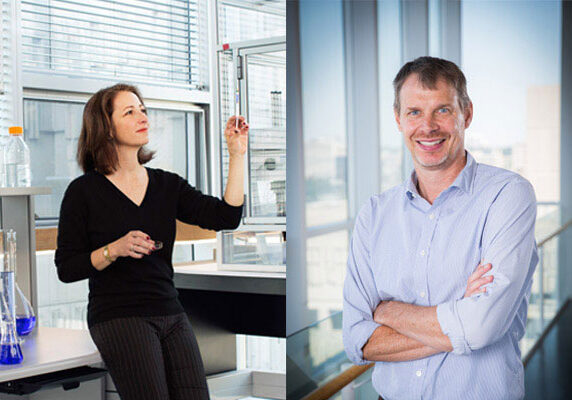
Behind the scenes of Medicine By Design with Molly Shoichet and Peter Zandstra
More than 50 researchers and clinicians at the University of Toronto and its partner hospitals are participating in Medicine By Design, the new centre for regenerative medicine announced on July 28, 2015. The centre, which builds on decades of U of T research dating back to the demonstration of the existence of stem cells by James […]
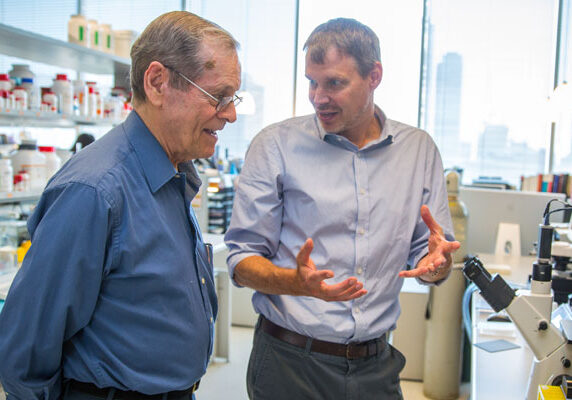
U of T to transform regenerative medicine with $114-million federal grant
The University of Toronto is set to cement its position as one of the world’s leading centres for the design and manufacture of cells, tissues and organs that can be used to treat degenerative disease, thanks to a $114-million grant from the federal government. “Our government is investing in research and innovation to create jobs, […]
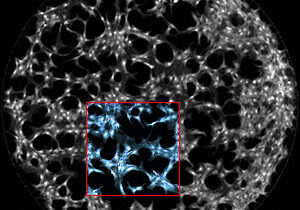
New device tracks chemical signals within cells
Biomedical engineers at the University of Toronto have invented a new device that more quickly and accurately visualizes the chemical messages that tell our cells how to multiply. The tool improves our understanding of how cancerous growth begins, and could identify new targets for cancer medications. Throughout the human body, certain signalling chemicals — known as […]
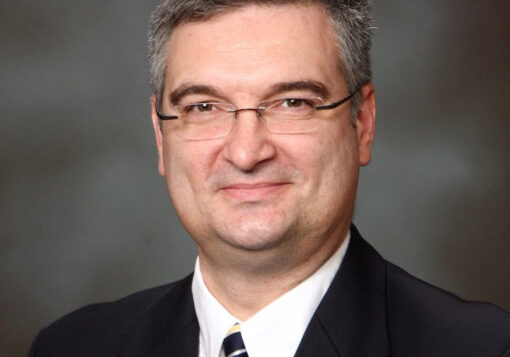
IBBME professor honoured with UHN Inventor of the Year Award
Professor Milos Popovic (IBBME) has been named the recipient of the University Health Network (UHN) 2014 Inventor of the Year Award for his creation of MyndMove, a non-invasive device that delivers electrical stimulation to paralyzed muscles producing movement in arms and hands. Popovic, a professor at the U of T Institute of Biomaterials & Biomedical Engineering (IBBME) and senior […]
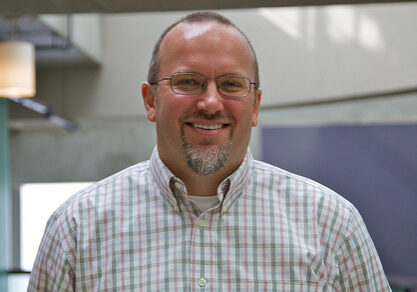
Engineers receive grant for ‘artificial liver’ that could help find more effective drugs
A research team led by U of T Engineering Professor Craig Simmons (MIE, IBBME) received $300,000 this week to create a 3D model of the human liver. Funded by Ontario Centres of Excellence and pharmaceutical consortium CQDM, the project could help determine whether or not new drug molecules are safe for use in humans. Drug developers rely on lab tests and […]
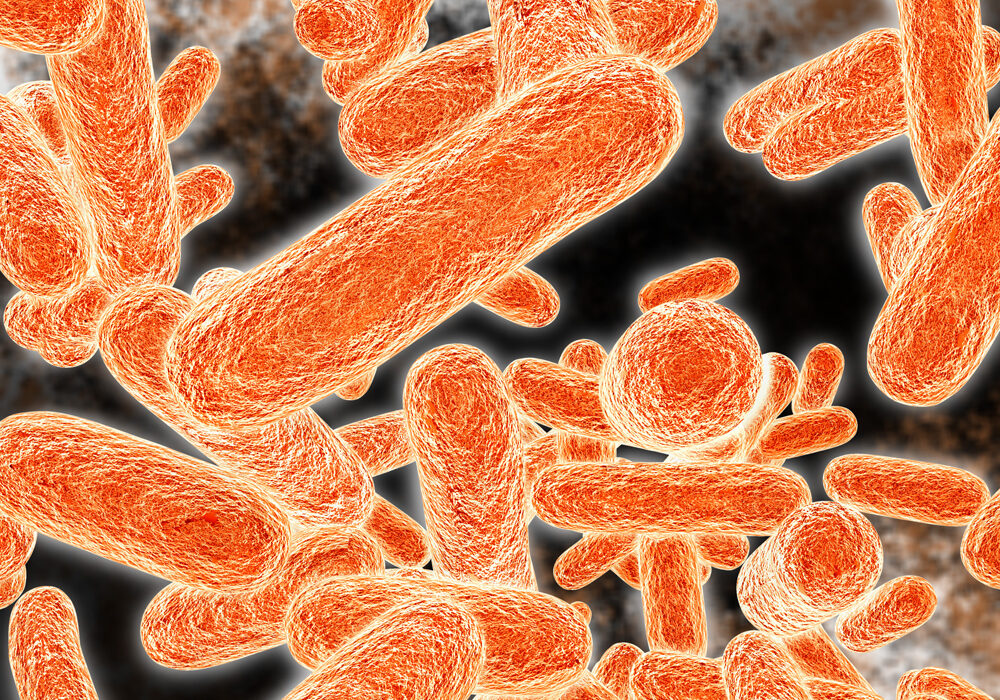
New chip makes testing for antibiotic-resistant bacteria faster, easier
Researchers at the University of Toronto design diagnostic chip to reduce testing time from days to one hour, allowing doctors to pick the right antibiotic the first time We live in fear of ‘superbugs’: infectious bacteria that don’t respond to treatment by antibiotics, and can turn a routine hospital stay into a nightmare. A 2015 […]

Hydrogels boost ability of stem cells to restore eyesight and heal brains
University of Toronto researchers show that engineered ‘hydrogels’ not only help with stem cell transplantation, but actually speed healing in both the eye and brain Toronto scientists and engineers have made a breakthrough in cell transplantation using a gel-like biomaterial that keeps cells alive and helps them integrate better into tissue. In two early lab […]
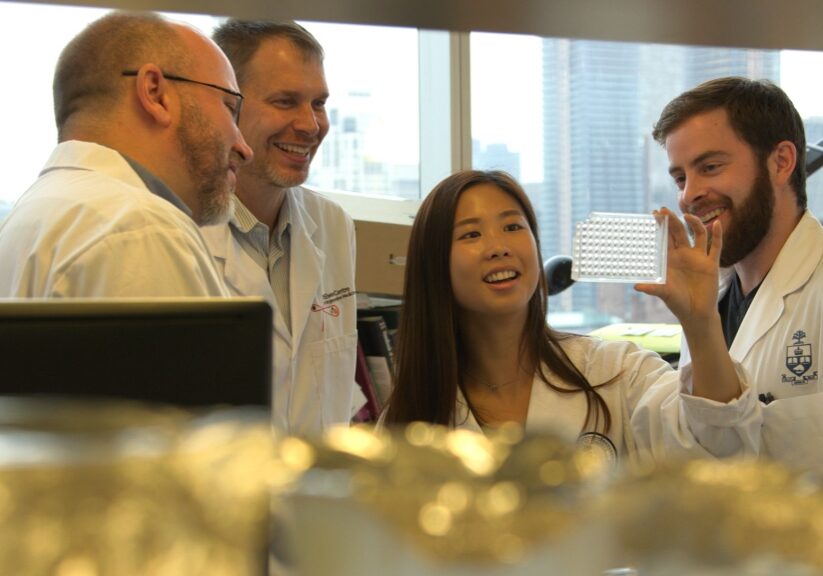
Faculties of Engineering, Dentistry and Medicine to collaborate in new Translational Biology and Engineering Program
Researchers from the Institute of Biomaterials & Biomedical Engineering (IBBME) continue to build on the Faculty of Applied Science & Engineering’s unparalleled strengths in biomedical engineering with the establishment of the Translational Biology and Engineering Program (TBEP)—a key component of the Ted Rogers Centre for Heart Research (TRCHR). TBEP will occupy an entire floor of […]

Preventing deformed limbs: researchers find new link between physical forces and limb development
University of Toronto engineers and a pediatric surgeon have joined forces to discover how physical forces like pressure and tension affect the development of limbs in embryos—research that could someday be used to help prevent birth defects. The team, including U of T bioengineer Rodrigo Fernandez-Gonzalez from the Institute of Biomaterials & Biomedical Engineering (IBBME), U of T mechanical […]

